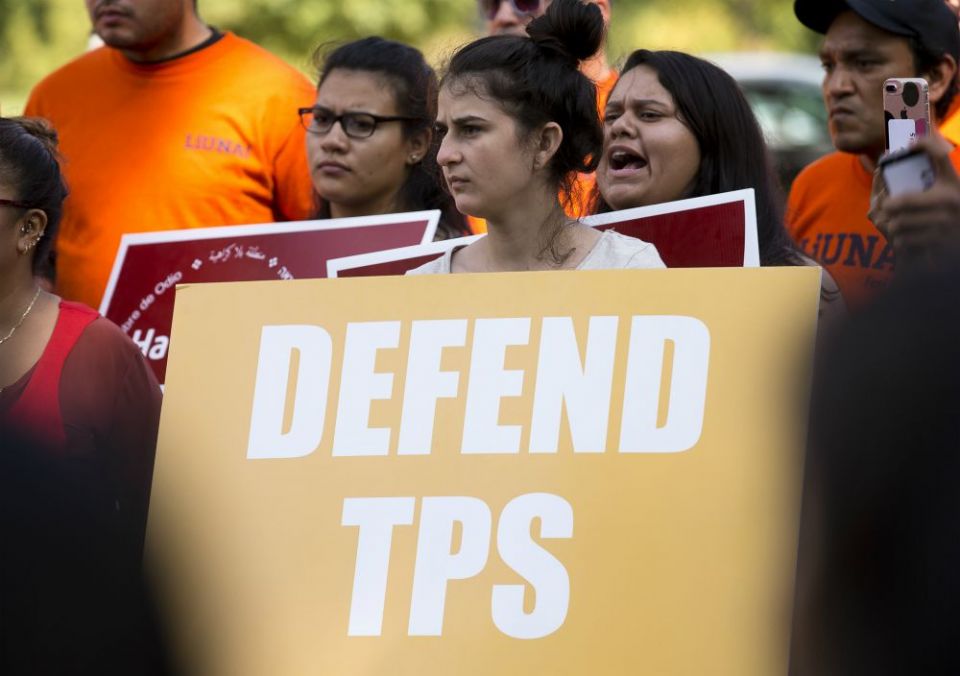by the El Reportero’s wire services
Re-registration period in now open for Nicaraguans with Temporary Protected Status (TPS). Current beneficiaries of TPS under Nicaragua’s designation who want to maintain that status through the program’s termination date of Jan. 5, 2019, must re-register between Dec. 15, 2017 and Feb. 13, 2018. Re-registration procedures, including how to renew employment authorization documentation, have been published in the Federal Register and on www.uscis.gov/tps.
Re-Registration
Period now open for Hondurans with TPS
Current beneficiaries of Temporary Protected Status (TPS) under Honduras’ designation who want to maintain that status through the current expiration date of July 5, 2018, must re-register between Dec. 15, 2017 and Feb. 13, 2018. Re-registration procedures, including how to renew employment authorization documentation, have been published in the Federal Register and on www.uscis.gov/tps.
Guerrero bishop met with drug cartel boss
The Catholic prelate has long championed dialogue with criminals to combat violence
A Catholic bishop who has called for dialogue with criminal organizations as a means to reduce violence revealed yesterday that he met four months ago with the head of a Guerrero drug cartel.
Bishop Salvador Rangel Mendoza of Chilpancingo-Chilapa made headlines earlier in the year after he asserted that crime gangs are part of the social fabric of remote Guerrero towns, as their presence is accepted and welcomed by local farmers.
Interviewed this week by the newspaper El Universal, Rangel described meeting with Isaac Navarrete Celis, the chieftain of the Sierra Cartel, also known as the Southern Cartel.
The bishop met with Navarrete, also known as “El Señor de la I” and described as one of Guerrero’s most dangerous criminals, at a hideout in the mountains amidst opium poppy plantations.
He felt he had to “intercede” because violence was keeping children from attending school and priests from reaching their parishes.
“I’ve certainly been in contact with and seen these people of crime with the goal of protecting the priests. When it has been necessary to see them I have done so,” Rangel said, recalling that three or four months ago the situation in the mountains of Guerrero “was very delicate.”
“Teachers and priests weren’t allowed in, so I had to go see this man and ask for his help, and thank God there was an understanding…”
Whatever the conditions, Rangel said, he will sit down and talk with criminals if it means bringing peace to Guerrero.
But at this point peace remains elusive as the war continues between Navarrete’s Sierra Cartel, which is aligned with Los Ardillos, and another powerful gang called Los Rojos.
At stake is the Chilapa-Tixtla-Chilpancingo-Leonardo Bravo-Iguala drug-trafficking corridor.
Eight weeks ago, dismembered bodies so badly burned they could not be identified were turning up in the trunks of burned-out cars or left at the roadside.
Rangel was appointed to the Chilpancingo-Chilapa diocese over two years ago, overseeing Catholic affairs in an area that encompasses violent zones such as Chilapa and Chilpancingo, but also the Sierra and part of the northern reaches of the state.
Since the beginning, Rangel has been an outspoken critic of the security strategy implemented by the administration of Governor Héctor Astudillo Flores, and urged there be dialogue.
The bishop has also claimed that drug traffickers and local politicians are allied and hold meetings “in the dark.”
“I know there are several municipalities in which drug traffickers have imposed the mayors of their choice, and even some [state] deputies. Certain politicians in Guerrero are sponsored by groups of drug traffickers,” Rangel told El Universal.



